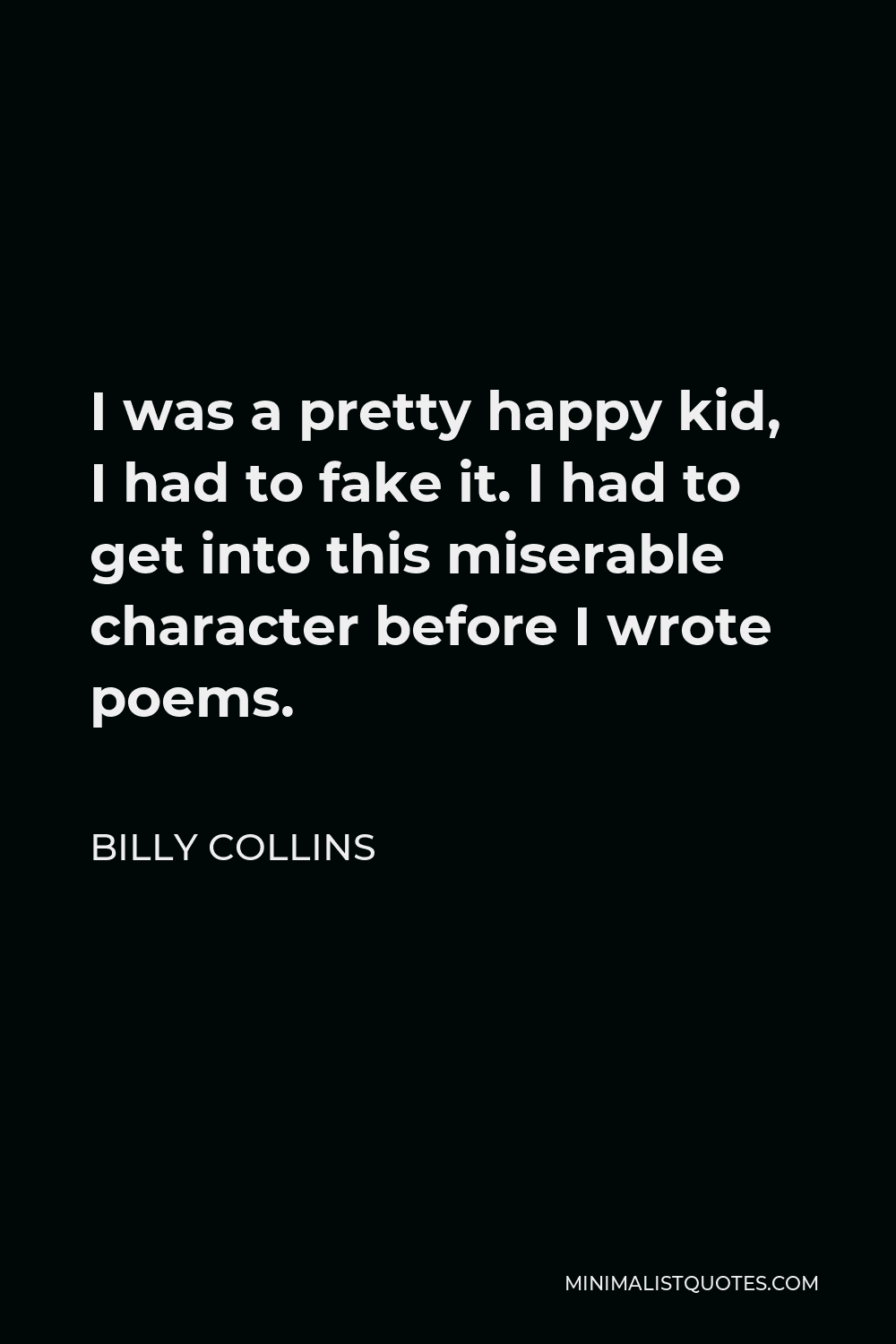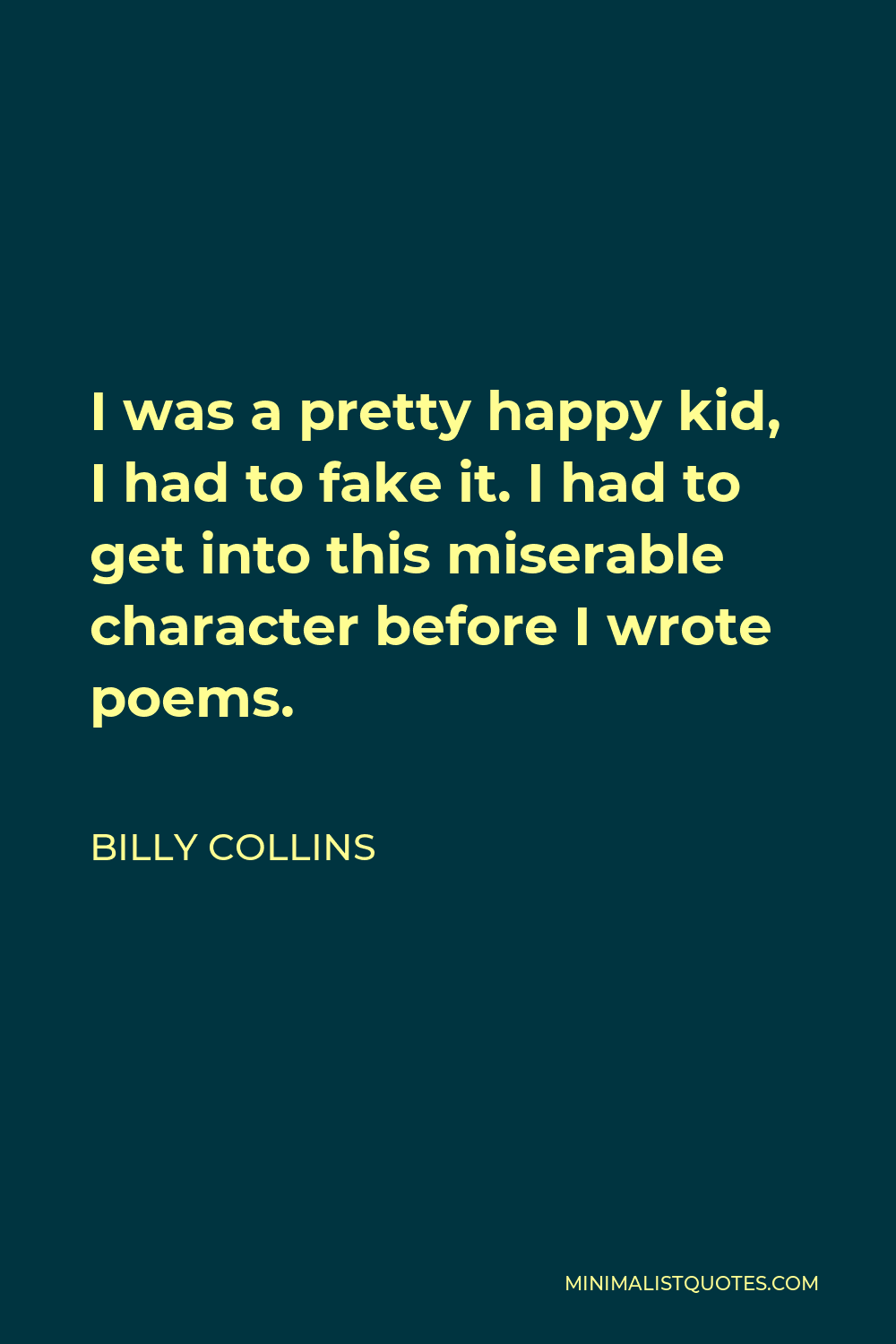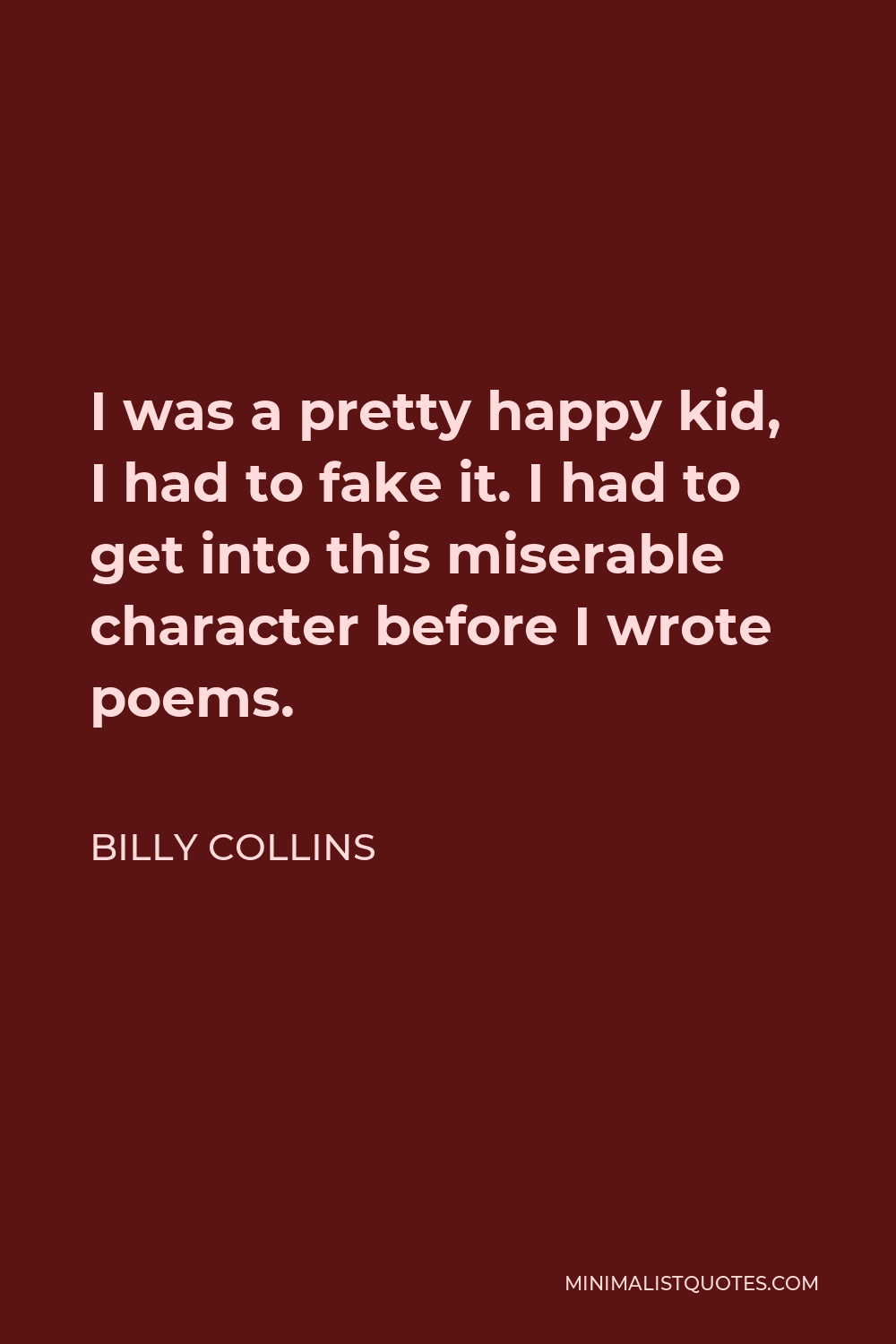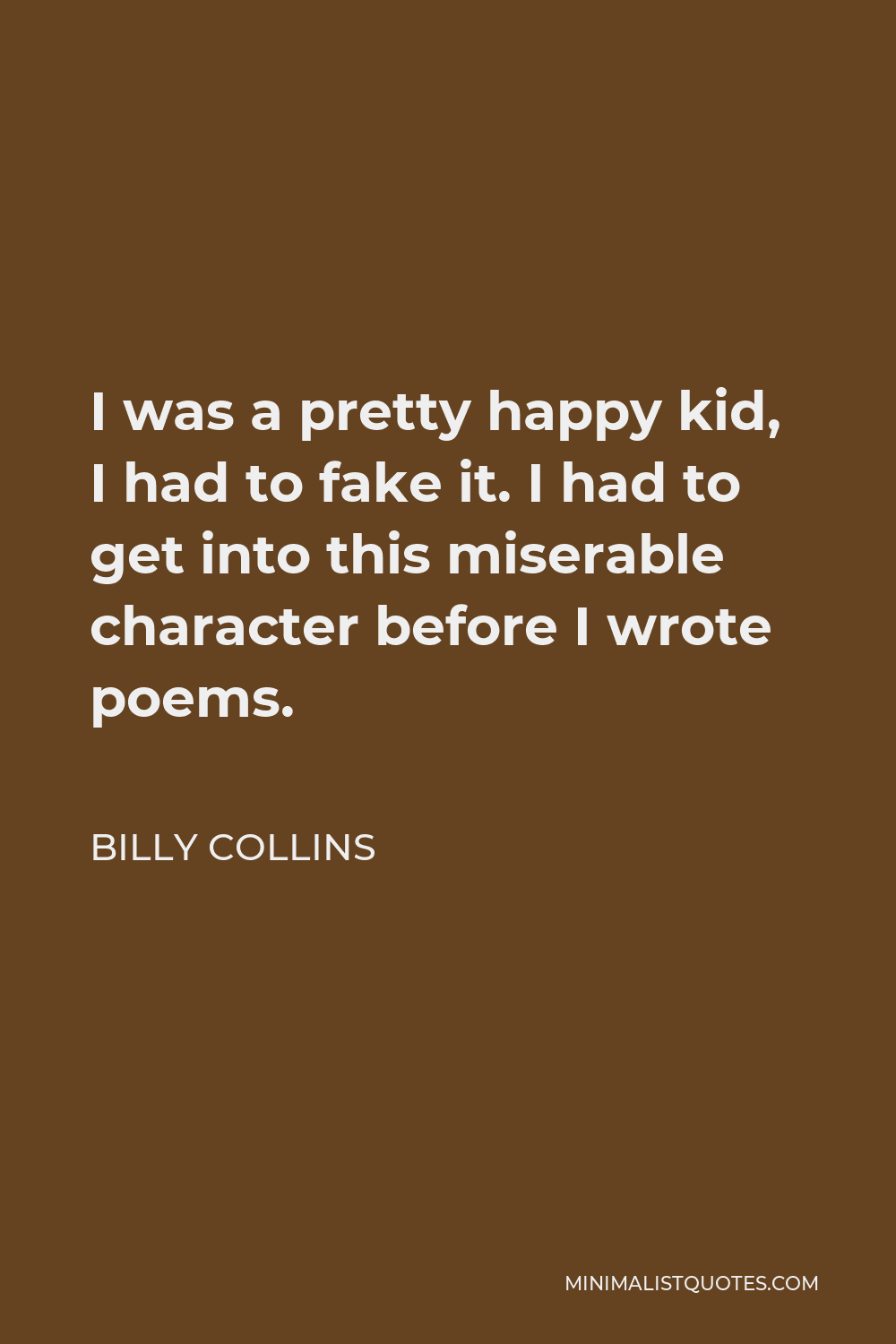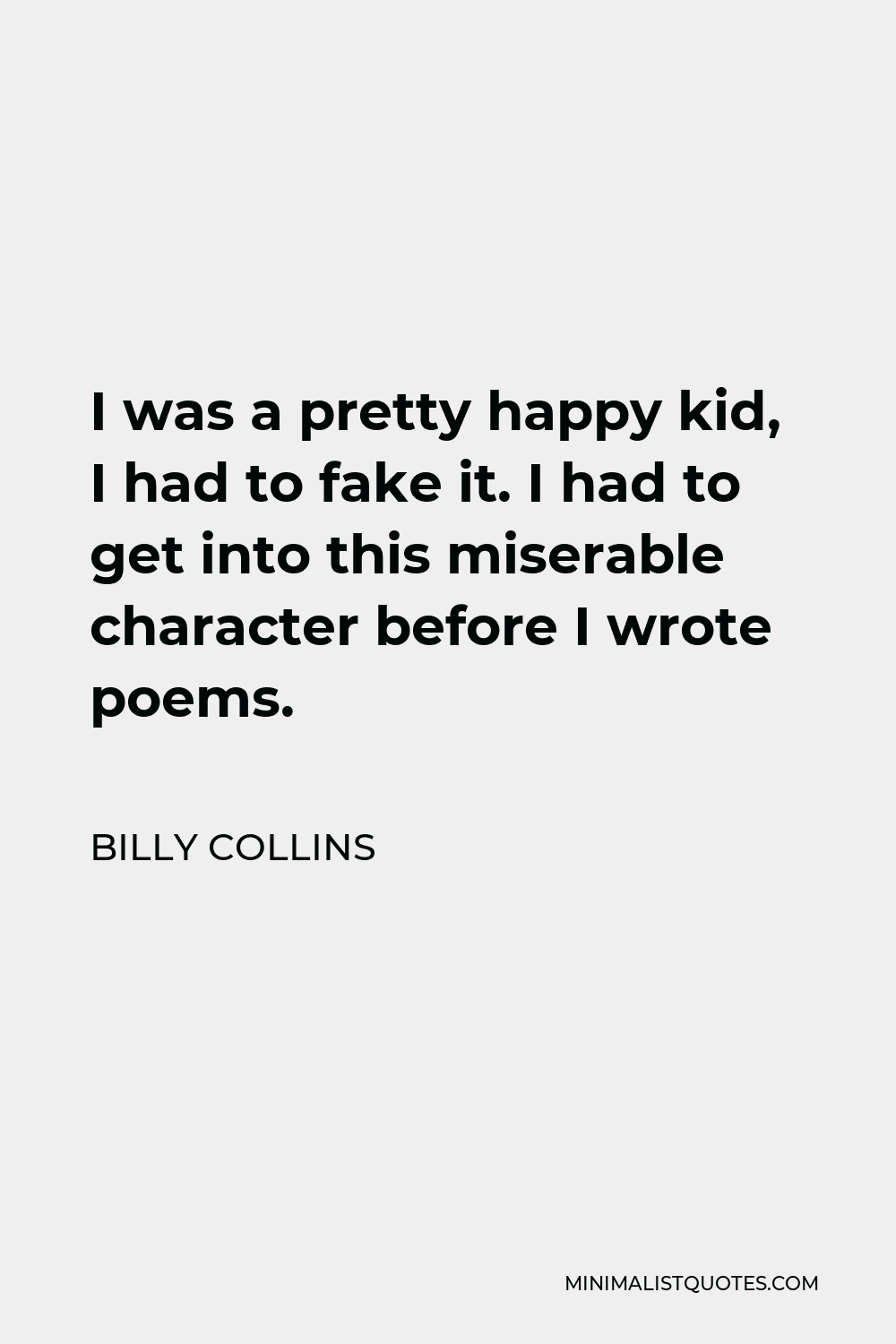I want them to waterski across the surface of a poem waving at the author’s name on the shore. But all they want to do is tie the poem to a chair with rope and torture a confession out of it. They begin beating it with a hose to find out what it really means.
BILLY COLLINSI was a pretty happy kid, I had to fake it. I had to get into this miserable character before I wrote poems.
More Billy Collins Quotes
-





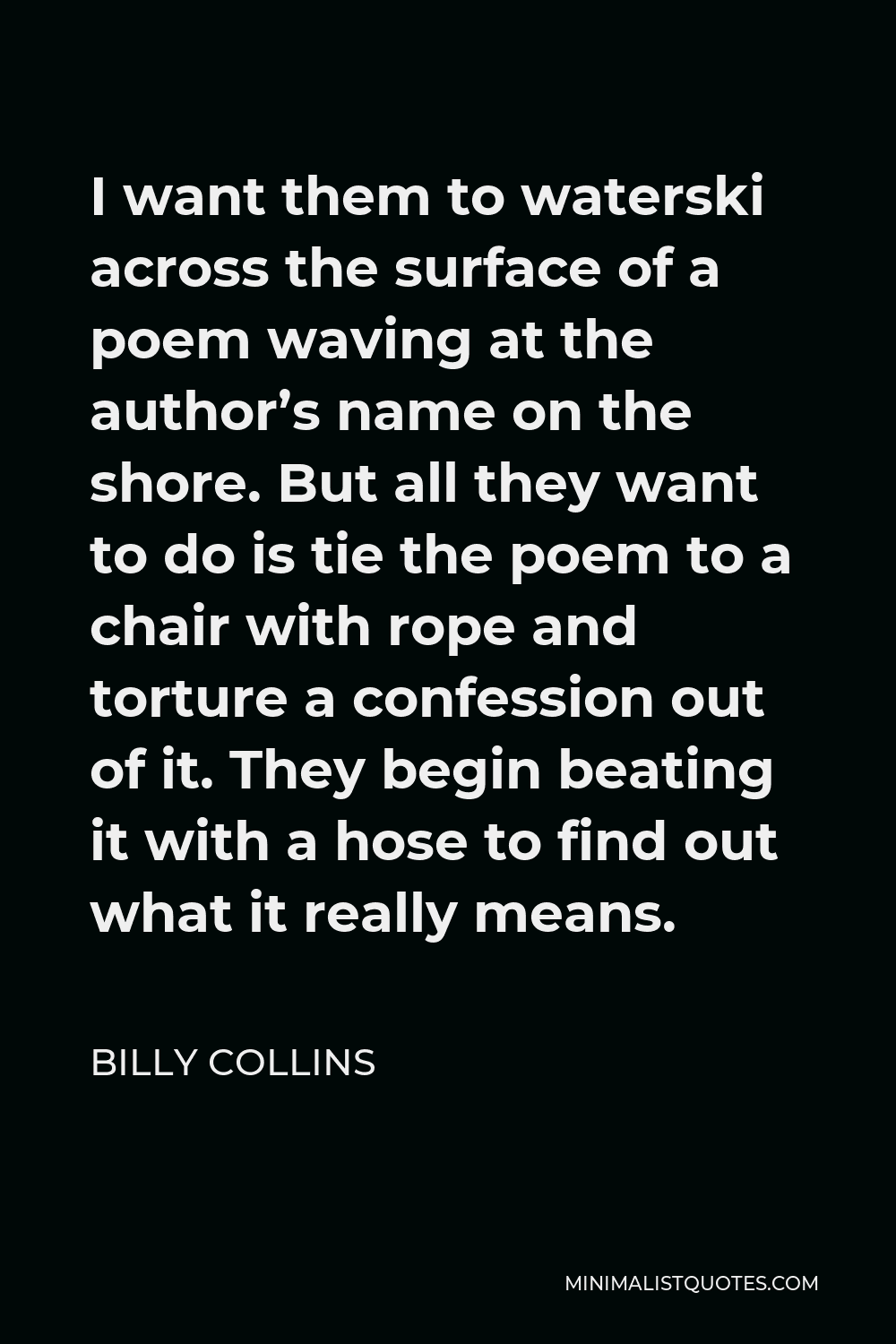
-





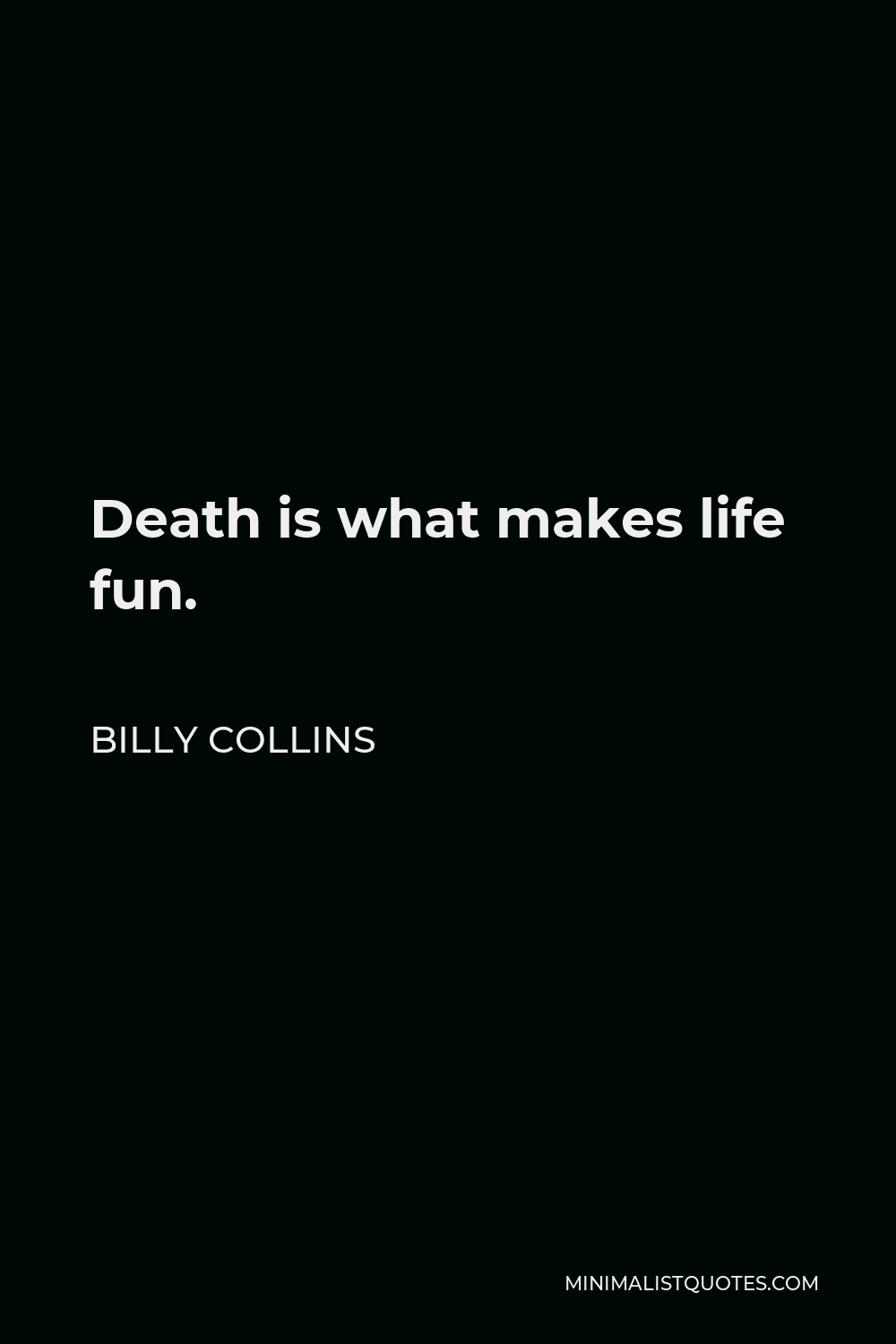
Death is what makes life fun.
BILLY COLLINS -





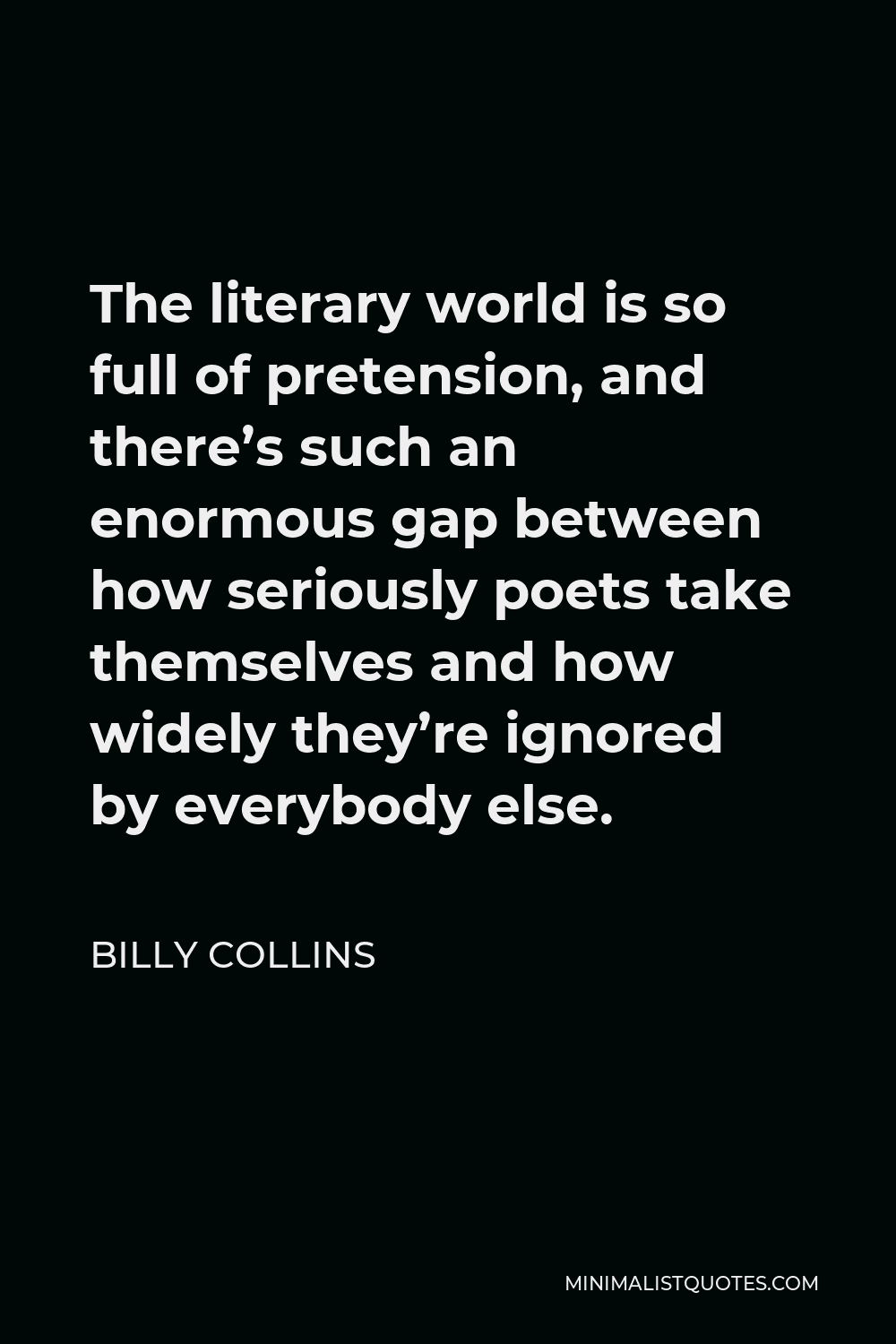
The literary world is so full of pretension, and there’s such an enormous gap between how seriously poets take themselves and how widely they’re ignored by everybody else.
BILLY COLLINS -





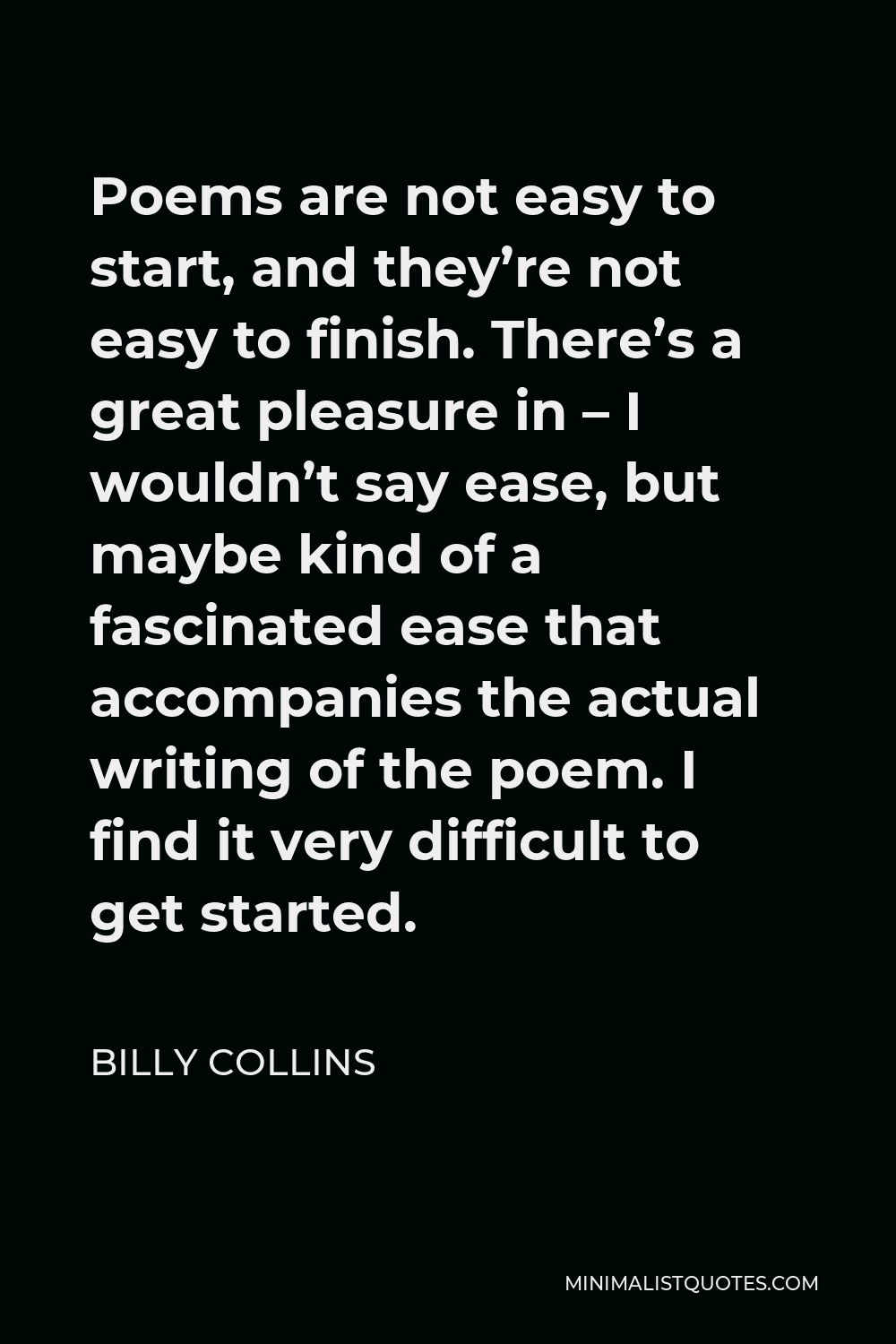
Poems are not easy to start, and they’re not easy to finish. There’s a great pleasure in – I wouldn’t say ease, but maybe kind of a fascinated ease that accompanies the actual writing of the poem. I find it very difficult to get started.
BILLY COLLINS -





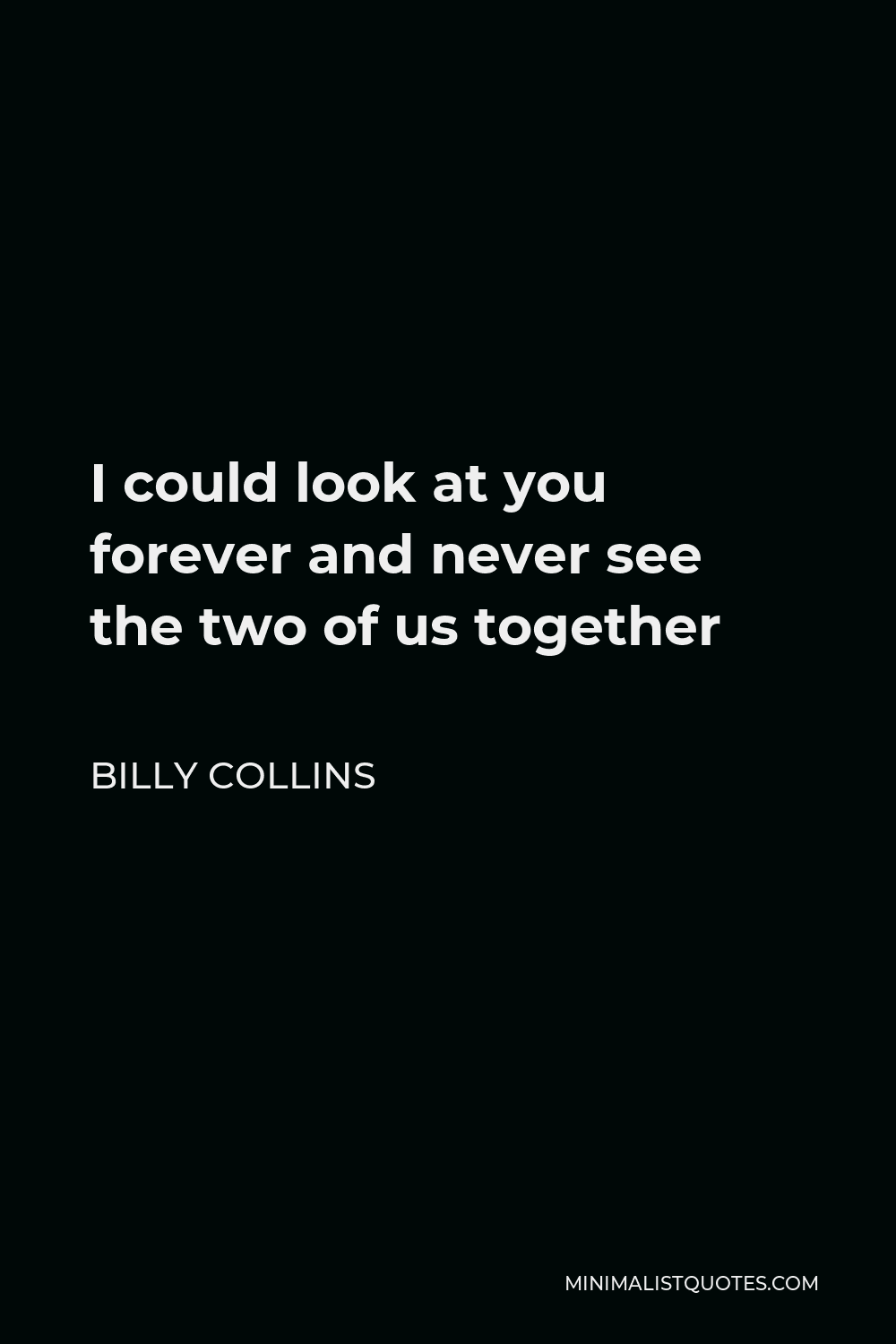
I could look at you forever and never see the two of us together
BILLY COLLINS -





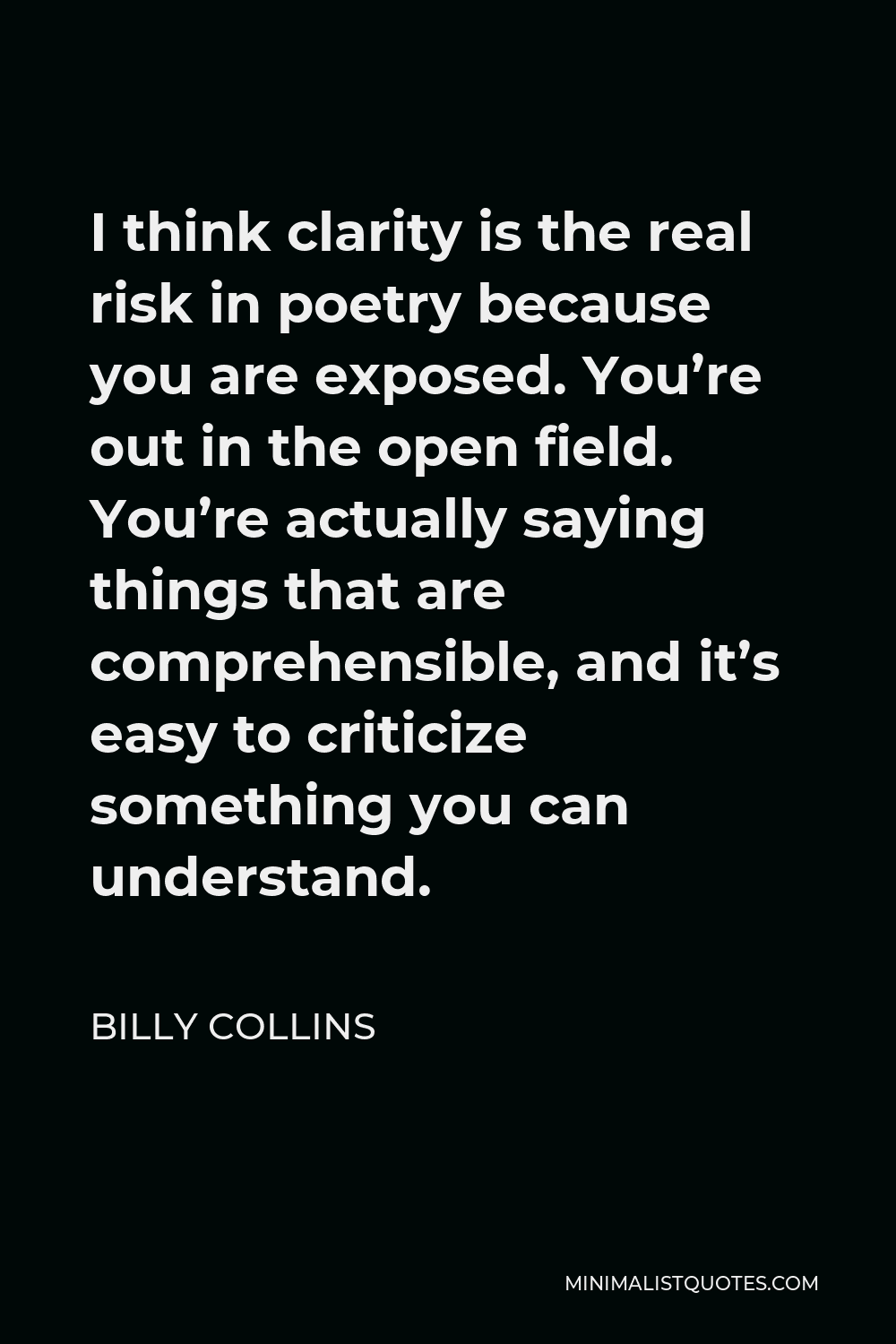
I think clarity is the real risk in poetry because you are exposed. You’re out in the open field. You’re actually saying things that are comprehensible, and it’s easy to criticize something you can understand.
BILLY COLLINS -





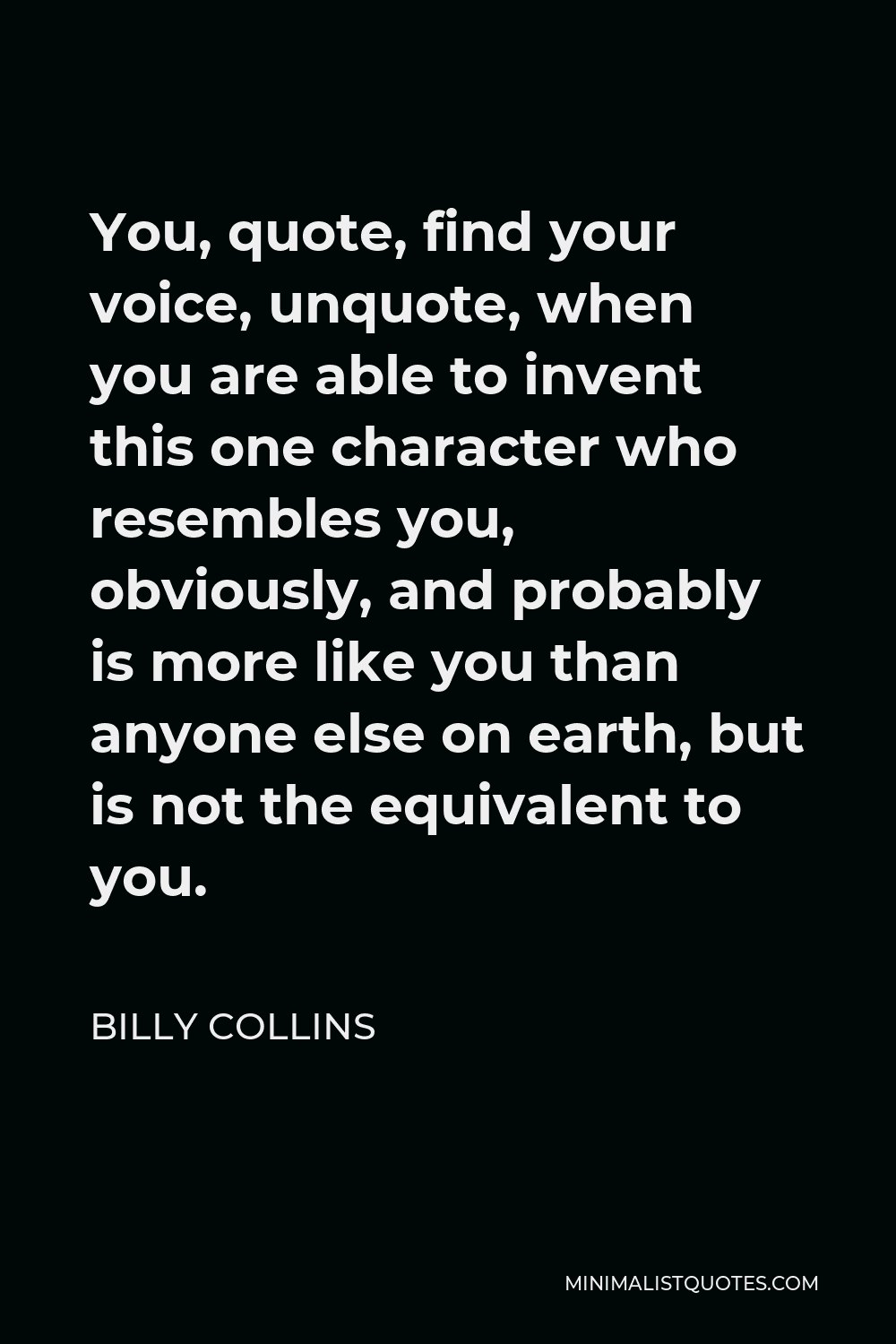
You, quote, find your voice, unquote, when you are able to invent this one character who resembles you, obviously, and probably is more like you than anyone else on earth, but is not the equivalent to you.
BILLY COLLINS -





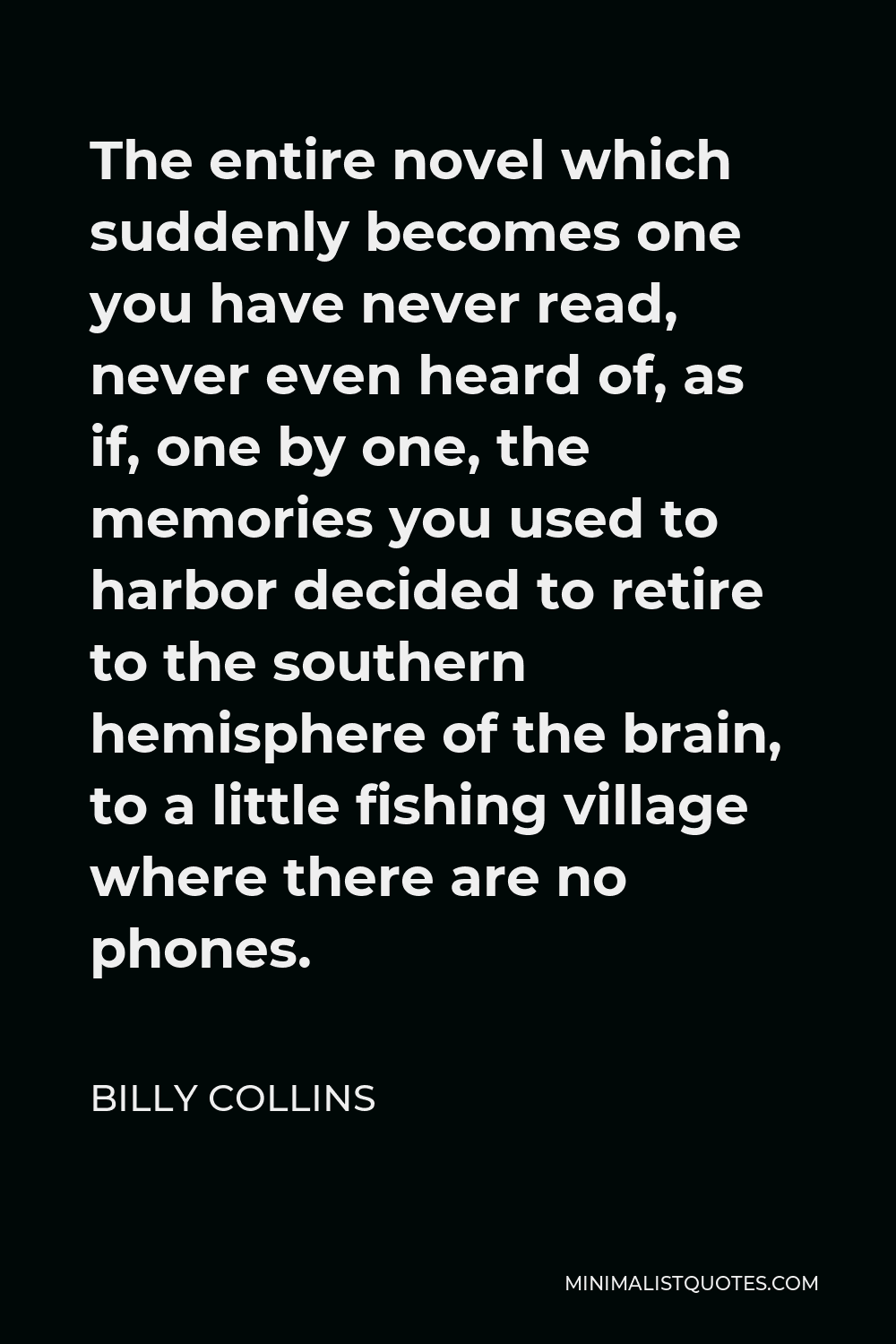
The entire novel which suddenly becomes one you have never read, never even heard of, as if, one by one, the memories you used to harbor decided to retire to the southern hemisphere of the brain, to a little fishing village where there are no phones.
BILLY COLLINS -





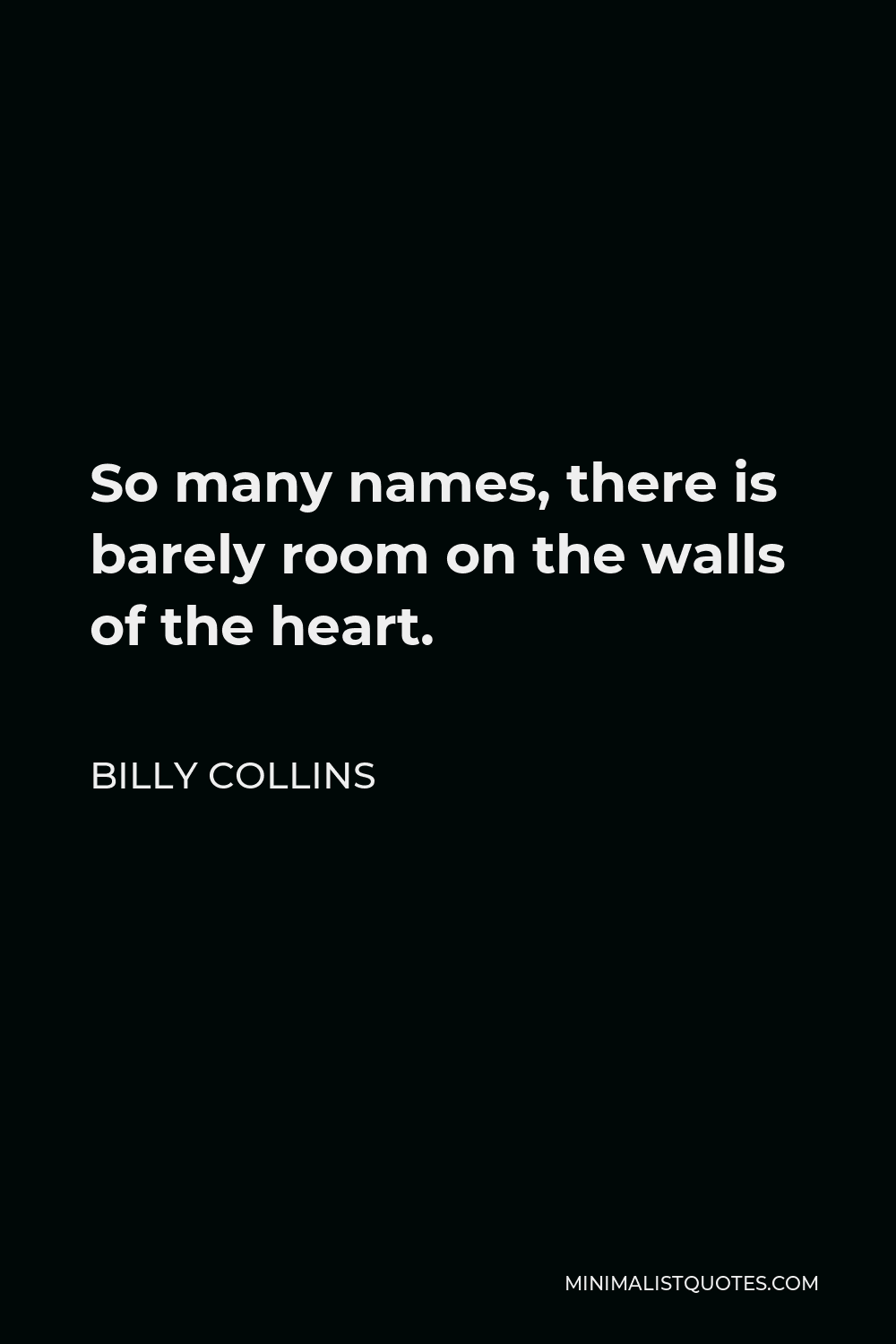
So many names, there is barely room on the walls of the heart.
BILLY COLLINS -





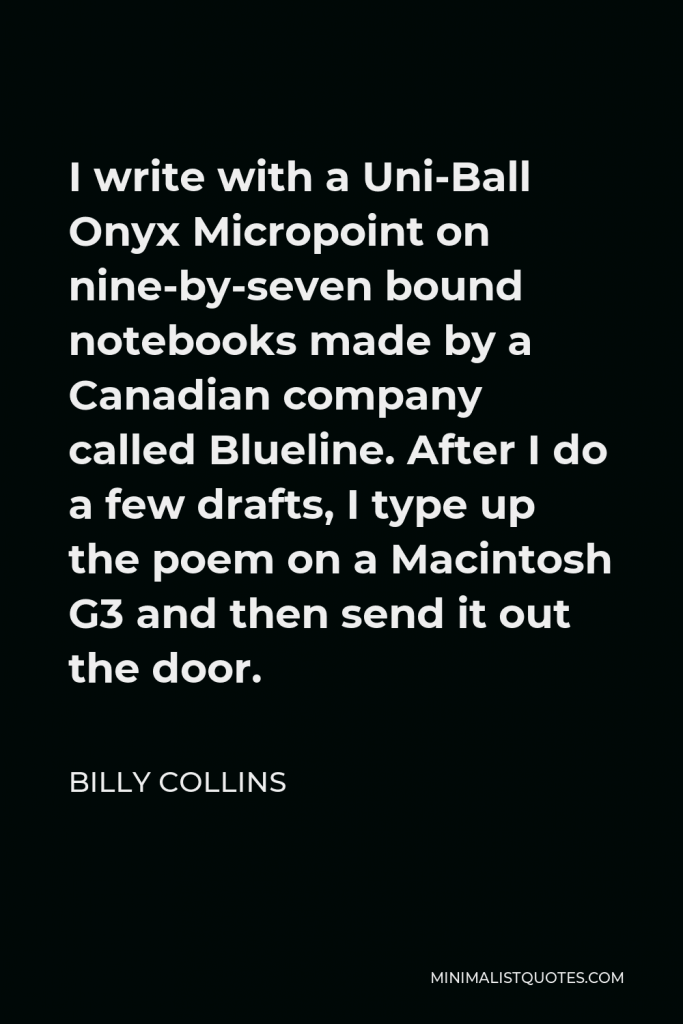

I write with a Uni-Ball Onyx Micropoint on nine-by-seven bound notebooks made by a Canadian company called Blueline. After I do a few drafts, I type up the poem on a Macintosh G3 and then send it out the door.
BILLY COLLINS -





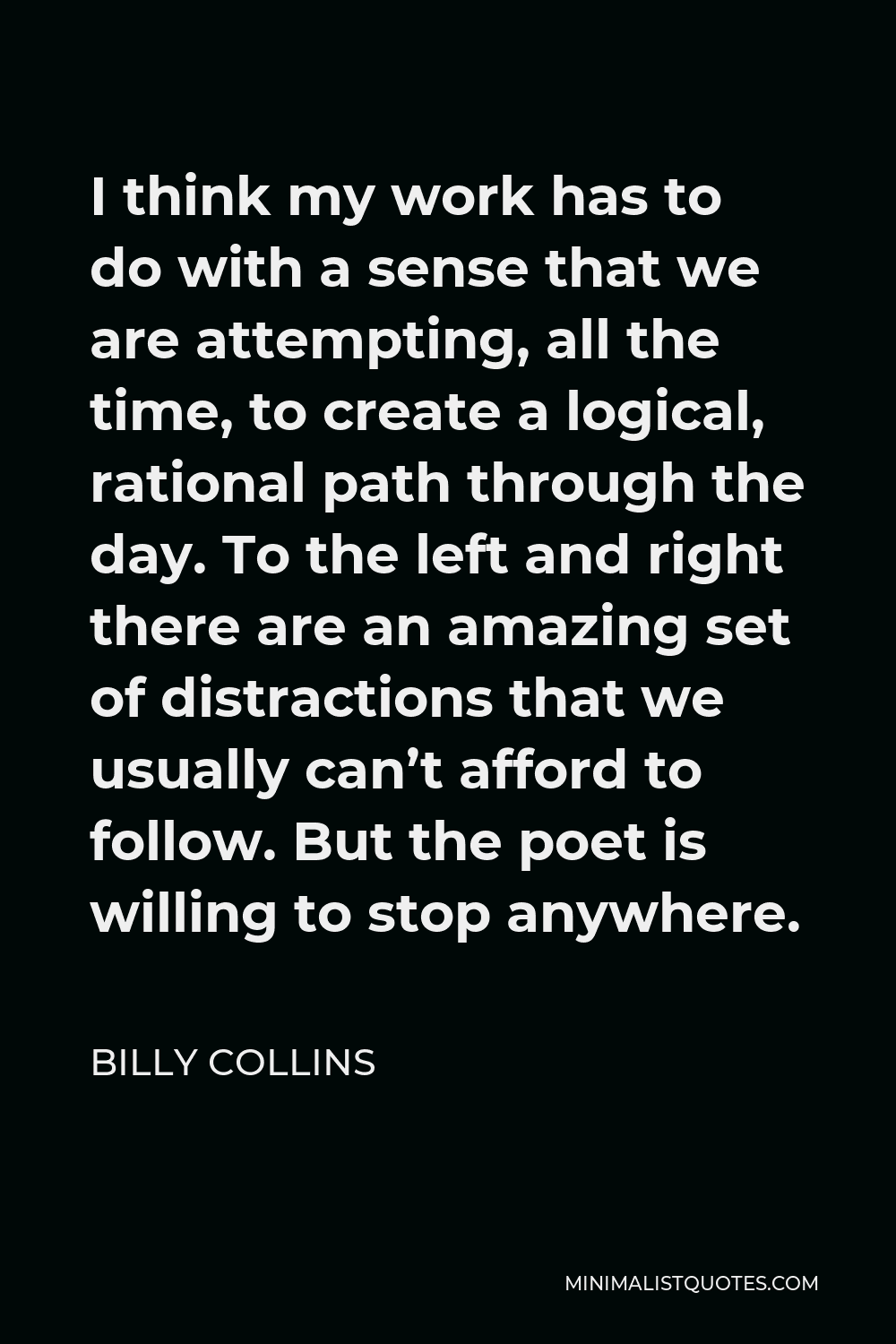
I think my work has to do with a sense that we are attempting, all the time, to create a logical, rational path through the day. To the left and right there are an amazing set of distractions that we usually can’t afford to follow. But the poet is willing to stop anywhere.
BILLY COLLINS -






I can hear the library humming in the night, a choir of authors murmuring inside their books along the unlit, alphabetical shelves, Giovanni Pontano next to Pope, Dumas next to his son, each one stitched into his own private coat, together forming a low, gigantic chord of language.
BILLY COLLINS -





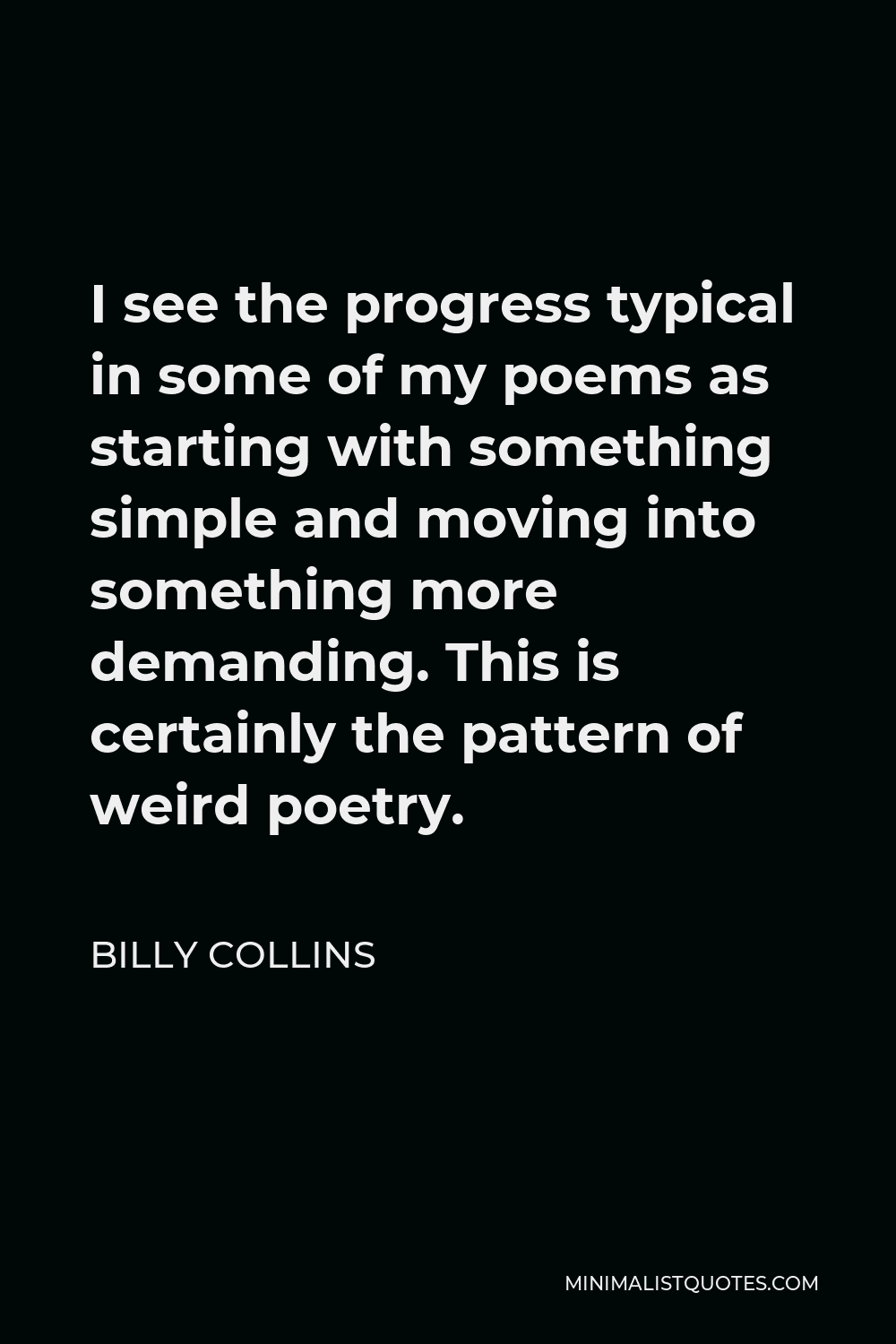
I see the progress typical in some of my poems as starting with something simple and moving into something more demanding. This is certainly the pattern of weird poetry.
BILLY COLLINS -





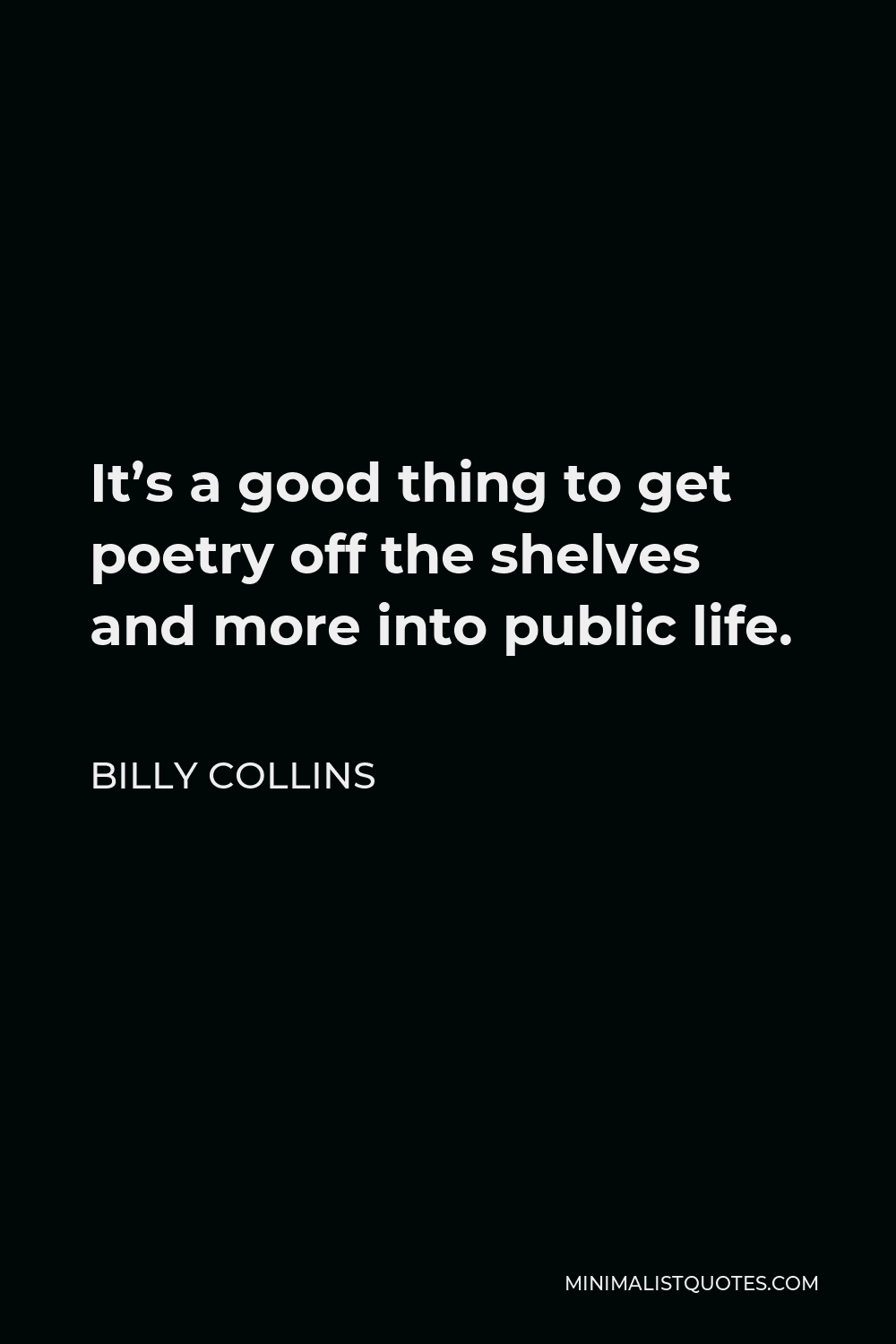
It’s a good thing to get poetry off the shelves and more into public life.
BILLY COLLINS -





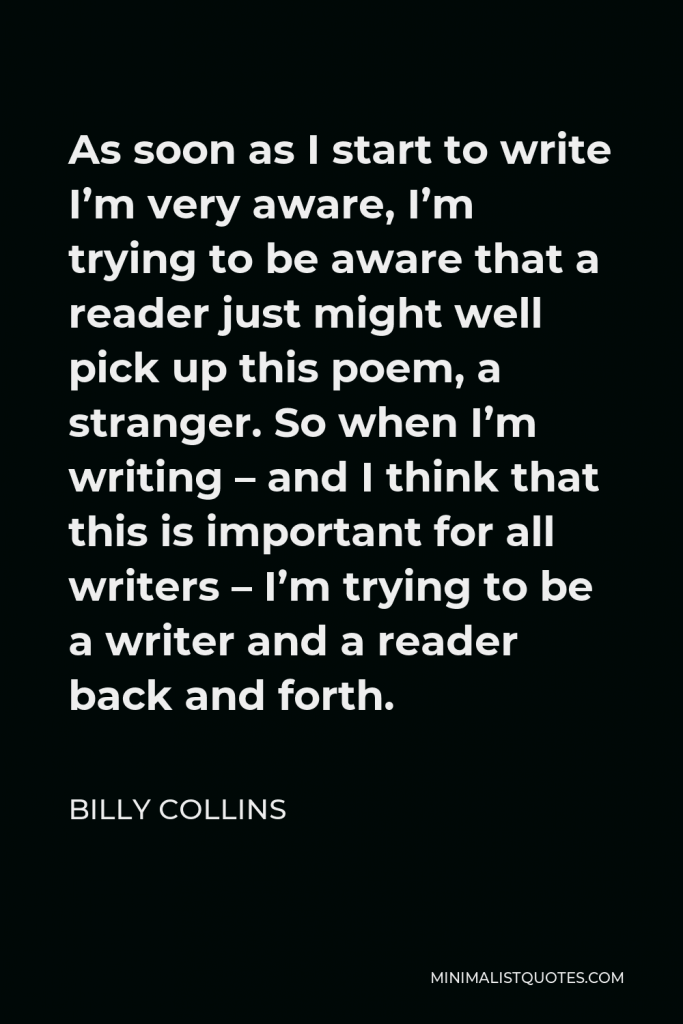

As soon as I start to write I’m very aware, I’m trying to be aware that a reader just might well pick up this poem, a stranger. So when I’m writing – and I think that this is important for all writers – I’m trying to be a writer and a reader back and forth.
BILLY COLLINS -





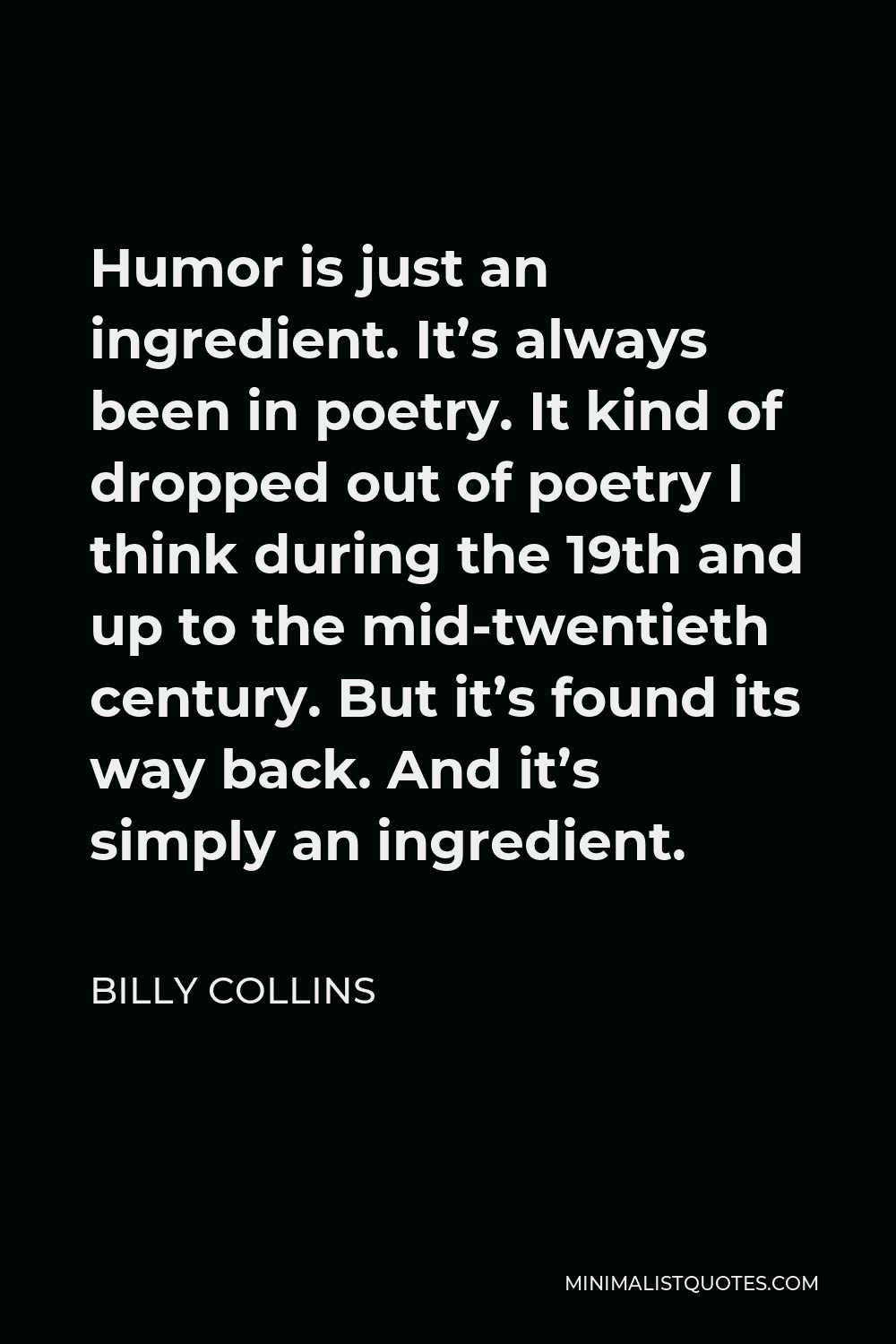
Humor is just an ingredient. It’s always been in poetry. It kind of dropped out of poetry I think during the 19th and up to the mid-twentieth century. But it’s found its way back. And it’s simply an ingredient.
BILLY COLLINS
